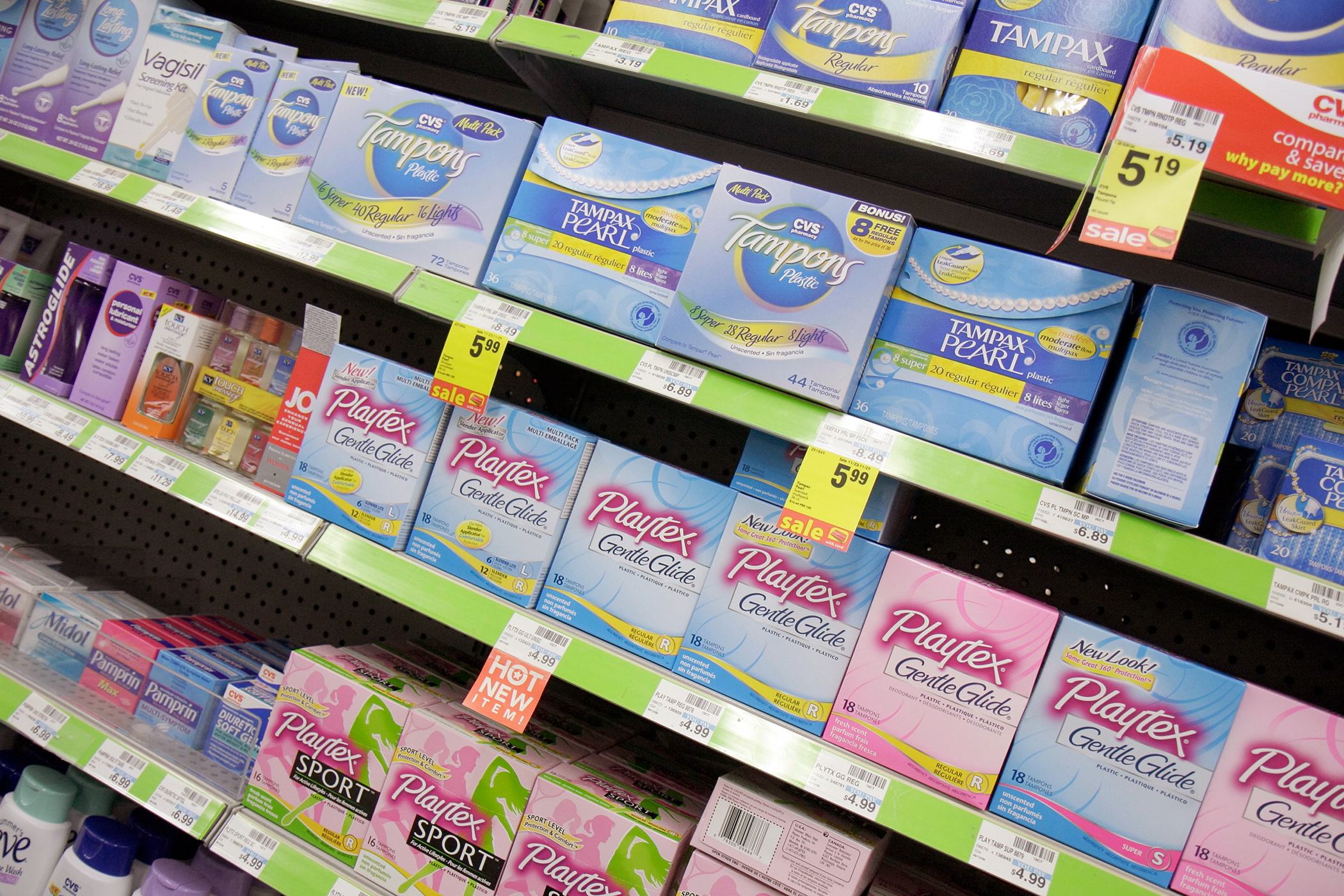
In a recent BMJ commentary, Dr. S. D. Shanti, an associate professor of public health at the Arizona School of Dentistry and Oral Health and a member of the faculty at College of Graduate Health Studies at A.T. Still University, argues that companies that make tampons and pads are “uniquely positioned” to reduce rates of violence against women – essentially, by donating a share of their profits to entities like the United Nations Trust Fund to End Violence Against Women.
Per the commentary, the UN group was only awarded about one percent of the funding for grant requests it requested in 2012. Brand titans like Playtex, Kotex, and Tampax represent the untapped potential of a steady revenue stream.
It’s an interesting ethical supposition – is a company morally obligated to join a particular dialogue simply because they put out a product vaguely associated with it? One out of three women will face sexual or domestic violence at some point in their lives. There are, of course, other products and companies that cater to women—cosmetics, bras—but few are so indispensable, in constant demand, and tied to public health as are tampons, pads, and other similar products like liners and menstrual cups.
As Shanti notes in her paper, cosmetic companies like Avon and Mary Kay often make charitable donations to women’s violence prevention, but those companies are not essential to women’s health and well-being in the same way that the makers of feminine hygiene products are. The entire controversy of the “tampon tax” centers on how a male-driven culture is dismissing as optional what is in fact a vital health product.
“It’s an essential commodity that women around the world need and use,” Shanti said. “We are half the market. And I’m not talking about [the tampon tax], absolutely not. I’m talking about there being such a thing as corporate social responsibility. This is a massive problem that affects women – why not share from your profits? Show goodwill to your customers, these women you’re making huge profits off of. It’s not optional.”
Procter & Gamble (which makes Always) has a program that provides pads and menstrual education to girls in South Africa and Kenya – puberty is a critical time for girls in many rural or developing areas, when it’s very common to drop out of school (or face being shunned outright). But there’s not much in the way of contributions from major feminine hygiene brands, not on the scale Shanti’s talking about.
There’s an enormous research and development engine behind these products, as evidenced by the variety in the goods – with and without wings, with and without applicators, different sizes, different materials, different scents – and the sheer volume of advertising. The resources, financially and otherwise, would seem to be there.
Public health is deeply underfunded, and we need to be thinking more creatively about how to compensate for that. Prevention science in the case of violence against women is tricky. There’s more of a stigma than with other causes; it’s also harder to quantify, at least in terms of the good charitable contributions can do. It’s not a disease that can be cured, at least not in the traditional sense; it’s not a concrete number of vaccinations that can be provided to a concrete number of children, or a mappable area of the rainforest that can be saved. Shanti believes the key lies in focusing on the positive imagery – that when women thrive, their communities thrive. Depression, already the leading cause of disability worldwide, affects women disproportionately – when we fight stigma and social isolation that can contribute to it, everybody wins.
“When I went to dental conferences, I got free toothbrushes, and then when I went to public health conferences, I got free condoms,” Shanti said. “When I went to psychology conferences, I got nothing. Cultural and psychological factors are hard to make concrete – how do you package behavioral change? How do you package social change? And it’s an unpleasant topic that people would rather just not engage in.”
More Must-Reads from TIME
- Cybersecurity Experts Are Sounding the Alarm on DOGE
- Meet the 2025 Women of the Year
- The Harsh Truth About Disability Inclusion
- Why Do More Young Adults Have Cancer?
- Colman Domingo Leads With Radical Love
- How to Get Better at Doing Things Alone
- Michelle Zauner Stares Down the Darkness
Contact us at letters@time.com